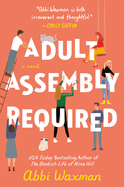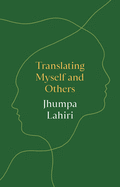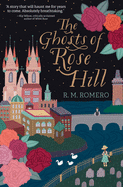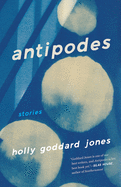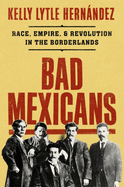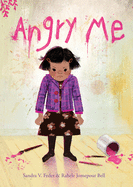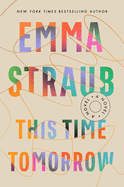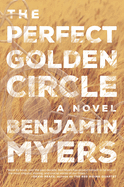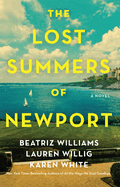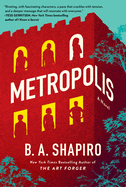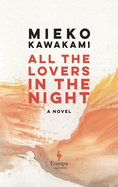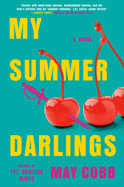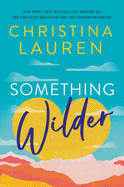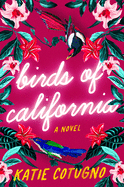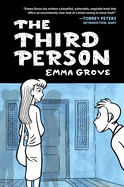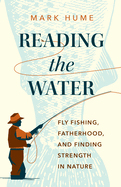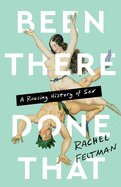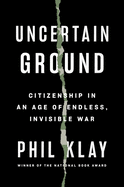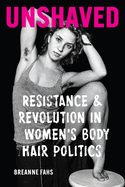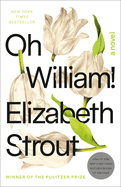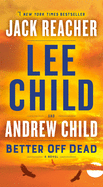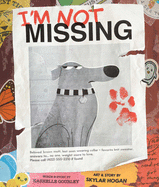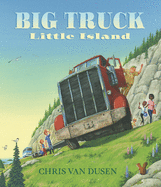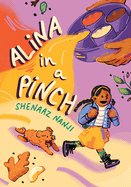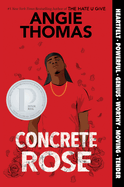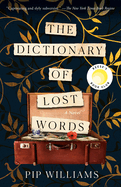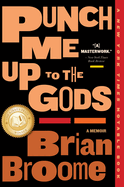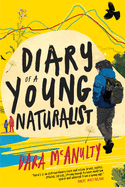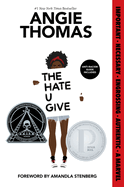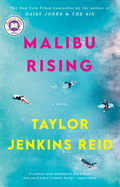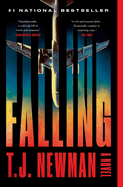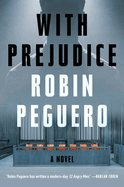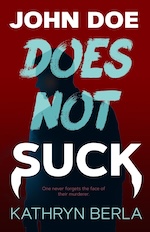Friday, May 20, 2022
Among our 25 reviews this week: Abbi Waxman's exploration of the challenges of adulting in her fifth novel, Adult Assembly Required. "All translation must be regarded first and foremost as a metamorphosis," writes Jhumpa Lahiri in Translating Myself and Others. And in The Ghosts of Rose Hill by R.M. Romero, a teen violinist descends into a haunted summer of love and longing.
In The Writer's Life, attorney Chantal V. Johnson tells us about her debut novel, Post-Traumatic, starring a Black Latina lawyer who represents psychiatric patients, plus the book she rereads every year and the authors who've influenced her.
Adult Assembly Required
by Abbi Waxman
Abbi Waxman (Other People's Houses) explores the challenges of adulting in her warmhearted fifth novel, Adult Assembly Required. Laura Costello wants to believe she's a full-fledged grown-up, which means being able to handle everything on her own. But right after she moves to Los Angeles for grad school, while still struggling with the traumatic effects of a serious car accident that occurred a couple of years earlier, her apartment catches fire. Almost before she knows it, Laura finds herself adopted by booksellers Polly and Nina (whom some readers will recognize from Waxman's The Bookish Life of Nina Hill), installed in a quirky boardinghouse of sorts and trying hard not to fall for her neighbor across the hall, whom Nina and Polly call Impossibly Handsome Bob.
As Laura navigates challenges like the reappearance of her ex, her mother's overbearing commentary from the other coast and L.A. public transit, her new friends support her in staunch and often entertaining fashion. She gradually learns to stand up to her family and acknowledge her fears and anxieties (including riding in cars after her accident). With heart and humor, Waxman sensitively explores the challenges of leaving the nest while still loving your family, as well as learning to set clear boundaries and ask for help--sometimes in the same moment. Laura's problems may not disappear, but by the end of the novel she has better tools to deal with them, along with a patchwork but fiercely loving community. Laura's story, which includes cameos of multiple characters from Waxman's previous novels, is a witty, hopeful celebration of courage, community and spreading one's wings. --Katie Noah Gibson, blogger at Cakes, Tea and Dreams
Discover: Abbi Waxman's warmhearted fifth novel explores the challenges of adulting while celebrating courage and friendship.
Antipodes
by Holly Goddard Jones
Antipodes, the fourth book and second collection of short stories by Holly Goddard Jones (The Salt Line), offers 11 riveting stories of contemporary life in the American South and Midwest. Some have pandemic settings and others are gently magical; all are true to the anxieties of modern careers, marriage and parenthood.
The narrator of the title story, a harried mother attending college classes in Kentucky, seeks to balance the opposing forces of her life and wonders what she might have to sacrifice. The ending elicits a gasp, as does the audacious inconclusiveness of "Exhaust," the tense tale of a quarreling couple driving through a blizzard. There's a Covid-19 background to "Distancing" and "Visitation," the former a piece of flash fiction about a mother who undergoes an earthy transformation, and the latter featuring a gamer who moves back in with his parents and encounters his childhood imaginary friend. Worry over environmental crises fuels "Ark," about a pyramid scheme for doomsday preppers, and "Swallows," in which a supermarket checker's simple hopefulness neutralizes a teacher's pessimistic outlook. "Machine" satirizes the academic creative writing industry. Other highlights include "Axis," in which a writer reclaims her relationship with her daughter, and "Fortress," a story about a Southern furniture designer who fears that professional success has cost him his family.
Whether thrown together in bizarre circumstances or handling moments of transition, Jones's characters feel like real people and make plausible decisions. Their dilemmas embody the paradox of disaster-laden 21st-century life: "everything seemed both precious and already lost." Fans of Nickolas Butler and Lorrie Moore will find much to admire. --Rebecca Foster, freelance reviewer, proofreader and blogger at Bookish Beck
Discover: Eleven stories--riveting microcosms of modern American family life, with all its complexity and anxieties--alternate realism and fabulism and star convincing characters.
This Time Tomorrow
by Emma Straub
Add Emma Straub (All Adults Here; The Vacationers) to the list of authors who have taken on the mind-bending topic of time travel, which she does with great aplomb in This Time Tomorrow. Her protagonist, Alice Stern, is the daughter of Leonard Stern, author of Time Brothers, a sci-fi work "about brothers who time-travel and solve low-level crimes." Straub, with her expert light touch, writes that Alice has lived in the same Brooklyn apartment since age 25 after having "limped through art school as slowly as she could." Fifteen years later, she works in admissions at her old private school, and divorced Leonard is dying. But then a twist: on the night before her 40th birthday, she wakes up in 1996, about to turn 16, with healthy Leonard, nearly 50 years old, offering her Oreos for breakfast.
What follows is a poignant take on a familiar question: What if one could go back and change the course of history? It's not an original concept, but Straub puts her spin on it with the same endearing charm evident in her previous novels, such as Modern Lovers. Readers will root for Alice as she tries to change her father's fate and win the love of a high school classmate. And Straub has fun recalling the pre-Google '90s, when one got movie times by calling Moviefone and office workers had computers "the size of a Fiat." This Time Tomorrow is a warm-hearted tribute to the value of simple pleasures and the fragile beauty inherent in every moment. --Michael Magras, freelance book reviewer
Discover: In this witty take on time travel, a 40-year-old single woman goes back to the 1990s and hopes to correct past mistakes.
The Perfect Golden Circle
by Benjamin Myers
The Perfect Golden Circle is a thrilling introduction to a British literary star and a moving meditation on history, trauma and the urge to create. Set in 1989, the novel takes place almost exclusively in the fields of rural England, where protagonists Calvert and Redbone use boards and rope to create massive, complex crop circles. Benjamin Myers (The Offing) maintains a tight focus on his two principal characters, societal outcasts with an intense, almost theological devotion to their craft. Perhaps his most impressive achievement is how, in chapters dedicated to the construction of a particular crop circle, Myers manages to stretch his focus far beyond the confines of the field, to encompass the social and political conflicts roiling the rest of the country.
Calvert and Redbone are The Perfect Golden Circle's only consistent characters, with a few others making unwelcome intrusions into the world they have created for themselves. Calvert is a veteran of the Falklands War with scars both physical and mental, while Redbone is a relic of a counterculture era that seems increasingly out of place in Thatcherite Britain. Their mission in creating the crop circles is both simple and difficult to define precisely, embodied by Redbone's repeated motto: "Fuel the myth and strive for beauty."
In the fields at night with Calvert and Redbone, Myers's evocative prose captures the unlikely friendship growing between the two characters as well as the ways their work helps them heal and find purpose. The Perfect Golden Circle is closely bound to its characters, but its reflective mood takes readers on enthralling excursions into England's vast history. --Hank Stephenson, the Sun magazine, manuscript reader
Discover: This thrilling reflection on land and country follows Calvert and Redbone as they attempt to heal and make meaning by constructing crop circles in 1989 England.
The Lost Summers of Newport
by Beatriz Williams, Lauren Willig, and Karen White
Love, class and scandal entwine in a web that stretches from the Gilded Age to 2019 in the intriguing The Lost Summers of Newport from authors Beatriz Williams, Lauren Willig and Karen White (The Forgotten Room).
The book opens in 2019, when architectural historian Andie Figuero's job as producer of Makeover Mansion is rapidly going downhill. Instead of sharing details about restoration techniques and the stories of the houses, she is being pushed toward focusing on salacious tales of the families. These demands are coming at a particularly unfortunate time: Andie has been forbidden to speak with Lucky, the elderly owner of the Newport, R.I., mansion Sprague Hall, which is the focus of this season. In 1899, Ellen Daniels is hired at Sprague Hall to teach music to heiress Maybelle Sprague; her stepbrother hopes this will lead to a marriage to an Italian prince. Ellen is hiding from an unsavory past, but the new circles in which she moves have more connections to her old life than she had hoped. And in 1957, a young Lucky struggles with social clashes and an ill-advised marriage until a secret upends the shaky security she thought she had.
These three women contend in their separate eras with secrets they must discover or protect. The threads of their stories weave together in a tale of intrigue that spans multiple generations--and that involves more than one violent death, as well as other less literal skeletons in closets. Fans of these authors' joint and individual works will be thrilled with the ride. --Kristen Allen-Vogel, information services librarian at Dayton Metro Library
Discover: Family intrigue in a Gilded Age mansion slowly unwinds over more than a century.
Metropolis
by B.A. Shapiro
Metropolis begins like a classic whodunit: Bostonglobe.com reports that someone fell down an elevator shaft at Cambridge's Metropolis Storage Warehouse, after which the individual was rushed to the hospital with critical injuries. According to the news story, "Neither police nor hospital officials identified the victim." As B.A. Shapiro's ingeniously plotted novel unspools, readers will try to determine who fell and why. But Metropolis prompts other, equally consuming questions: What would compel people to take up residence in their self-storage units, and what would it take to turn their lives around?
Among the renters at Metropolis, a six-story brick pile near MIT on bustling Mass. Ave., are Jason, a Black immigration lawyer who left his corporate job to strike out on his own, his storage unit his new office; Liddy, who is under the thumb of a rich and, recently, violent husband; Marta, a Venezuela-born doctoral candidate in violation of a deportation order, the result of clerical errors; and Serge, a street photographer who has never shown his work to a soul. Rose manages Metropolis. She is a mother of three and wife of an injured Afghanistan veteran with diminished earning power.
The novel's perspective wanders among the story's key players, whose lives intersect in fate-altering ways. The building's dodgy history is yet another of Metropolis's finely etched dramas. Shapiro, who specializes in novels about art (The Art Forger; The Muralist), will hopefully indulge the reviewer a sports metaphor, especially given that the Boston Red Sox are a touchstone in Metropolis: she takes her time loading the bases, and in the last inning, she hits it out of the park. --Nell Beram, author and freelance writer
Discover: In this ingeniously plotted novel, readers are challenged to determine the identity of the person who fell down an elevator shaft in a Boston-area storage facility.
All the Lovers in the Night
by Mieko Kawakami, transl. by Sam Bett and David Boyd
From acclaimed Japanese writer Mieko Kawakami comes the novel All the Lovers in the Night, on the heels of her 2020 short story collection, Breasts and Eggs, and 2021 novel, Heaven. Fuyuko Irie is a freelance proofreader in her mid-30s and living alone in Tokyo. Though she has a stable income and considerable professional autonomy in a cutthroat field, she is otherwise unmoored from societal institutions and other people. Her only friend is Hijiri, her boss, with whom she has little in common but from whom she receives confidences, while confiding little in return. Fuyuko, seeing her reflection one day in the mirror on the street, decides to change. First, she starts drinking beer and sake at all hours. Then she visits an adult education center, thinking she will take a class, only to meet Mitsutsuka, a high school physics teacher.
Written in first person and translated by Sam Bett and David Boyd, All the Lovers in the Night is remarkably free of exposition and character background in its opening pages. Fuyuko even states that she cannot remember much of her life. This dissipates somewhat as events unfold and past traumas are excavated. However, Fuyuko does not arrive at comfort or connection without great risk or substantial pain.
All the Lovers in the Night is a deeply serious meditation on modern womanhood; its colloquial, confessional and conversational style and wondrous discourses on the nature of light lend an atmospheric tone devoid of melodrama. By portraying the specific with such intricacy, Kawakami invites all readers in. --Walker Minot, freelance writer and editor
Discover: Mieko Kawakami delivers an unsettling, deceptively straightforward narrative of an outwardly successful young woman navigating the isolations of contemporary life.
Mystery & Thriller
My Summer Darlings
by May Cobb
My Summer Darlings by May Cobb begins as an energetic, gossipy story about three women whose strong friendship dates back to their childhoods in Eden Place, an upscale subdivision in Cedartown, Tex. But Cobb slyly and smoothly turns her third novel into a sinister story about jealousy and obsession that leads to violence.
Kittie Spears and Cynthia Nichols come from wealthy families, but money never made a difference in their deep friendship with middle-class Jen Hansen, who moves back to their northeast Texas town with her teenage son and struggles financially after a bitter divorce. The three regularly get together for "Wine Night," which involves several bottles, good food and lots of dishing about neighbors and their children. Then "dead handsome" Will Harding buys one of the neighborhood's largest mansions. Will seems to embody both the bad boy, with his loud 1967 Chevy pickup and "toned lean" arms, and the sensitive soul, who spouts poetry and reveres his late mother's photograph. Lonely, single Jen is instantly smitten, but so are Kittie and Cynthia, both of whom appear to be willing to ruin their marriages over Will, who is able to pinpoint each woman's vulnerabilities and use this against them. When violence erupts, Cobb cleverly enfolds it into the gripping plot.
Cobb (The Hunting Wives) also cannily depicts the complicated social sphere of the women's teenagers. My Summer Darlings is an excellent, character-driven illustration of how each woman puts on a different face to the public, keeping angst to themselves. --Oline H. Cogdill, freelance reviewer
Discover: In this character-driven thriller, the friendship of three women is tested--and their lives put in jeopardy--when each falls for a handsome man who has moved into their upscale Texas neighborhood.
Romance
Something Wilder
by Christina Lauren
The co-writing team known as Christina Lauren (The Soulmate Equation; The Unhoneymooners; The Honey-Don't List) branches out into romantic suspense with Something Wilder. Filled with their trademark humor and clever banter, Something Wilder adds an extra frisson of suspense, as a group of people on a "treasure hunt" through the Utah wilderness discovers that the legend of Butch Cassidy's hidden treasure might, in fact, be real.
Lily Wilder, daughter of famed treasure hunter Duke Wilder, reluctantly trades on her father's name to keep her wilderness horse-trekking business afloat. Duke was an absentee father who left Lily penniless after his death, but she still hopes someday to reacquire their family ranch. Until then, taking groups of people out for team building or bachelor fun in the Canyonlands of Utah is the only way she can make ends meet. When Lily's latest group of tourists shows up, she is appalled to see that one of them is Leo, the man who broke her heart a decade before. But avoiding Leo soon becomes the least of Lily's problems, as strange occurrences reveal that someone believes that Duke did find Butch Cassidy's hidden treasure--and that he told Lily where to find it.
Funny and adventurous, Something Wilder is a rollicking good time, with desert shootouts, campfire kissing and literal treasure hunting. It's a perfect blend of action and romance, sure to appeal to Christina Lauren fans and new readers alike. --Jessica Howard, freelance book reviewer
Discover: In this funny and adventurous romance, a woman leading a desert horseback trek for her ex-boyfriend and his friends realizes that she might know where Butch Cassidy's treasure is hidden.
Birds of California
by Katie Cotugno
In her first novel for adults, Katie Cotugno (How to Love), author of seven bestselling YA novels, invites readers to look beyond the tabloid headlines. Birds of California is a character-driven contemporary romance featuring two actors who once starred as siblings in the titular family drama series. Once known for drunken exploits and fights with paparazzi, Fiona St. James has been hiding from the spotlight for years when her agent calls her to pitch a reboot of the show that made her famous--and wrecked her mental health.
Sam Fox is desperate to find work to support his sick mother, but after reconnecting with Fiona and seeing her genuine fear, he's not interested in pressuring her to sign on. Cotugno deftly employs dual narratives in Birds of California: Fiona knows why she acted out in the past and readers will have some inkling as well, but Sam is privy only to what Fiona chooses to reveal to him.
Cotugno is known for tackling hard issues with nuance and care in her young adult novels, and this adult romance is no different. As the characters grow closer and photographers rediscover Fiona, Sam learns the truth of her past and is forced to reevaluate his assumptions as Fiona grapples with her PTSD. This is not a romantic comedy, but Cotugno does lighten what could have been a melancholy story with plenty of get-to-know-you banter and steam. Birds of California is a poignant reminder that people--and their stories--aren't always as they appear. --Suzanne Krohn, librarian and freelance reviewer
Discover: Former teen co-stars are reunited by a possible television revival in this modern, steamy romance that explores misuse of power, mental health and public scrutiny in Hollywood.
Graphic Books
The Third Person
by Emma Grove
Debut author Emma Grove's luminous graphic memoir opens with a declaration: "None of the following incidents are made up or invented... I wish they were." Grove presents The Third Person in stark black-and-white panels with drawings outlined in a thick black line. The simplicity of her art is a stark contrast to the harrowing hardships she survived while seeking gender-affirming healthcare.
Grove is transgender. By age 33, living as a man is utterly untenable. To commence medical transition requires the approval of a gender therapist. Grove settles with Toby (who's also trans) because he doesn't make demands about interrogating her past--at least not initially. Their meetings dominate the narrative as Grove reveals her "parts," that she is actually three "separate" people: overworked, exhausted Ed; aggressively protective Katina; and tentative, thoughtful Emma. Toby, self-admittedly, is not equipped to treat her, yet she continues to return. Her eventual Dissociative Identity Disorder diagnosis becomes a wrenching challenge to identify, accept and resolve. Healing demands she must finally confront the geneses of her ongoing dissociations. Her dancing with abandon at book's end, depicted in color, is a worthy celebration indeed.
Despite the memoir's hefty page count, Grove's accomplished storytelling will undoubtedly encourage single-sitting reads. Those hundreds of pages of therapy sessions, beyond a guilt-tinged voyeuristic awe, might not seem scintillating by description. But Grove manifests her superb artistry in capturing emotions and reactions with a mere tip of the head, an angled face, animated eyebrows and added hand gestures. Grove's "gigantic jigsaw puzzle" proves to be a gift to behold. --Terry Hong, Smithsonian BookDragon
Discover: Emma Grove makes her spectacular debut with a 920-page graphic memoir so urgent and absorbing as to demand a single-sitting read.
Biography & Memoir
Reading the Water: Fly Fishing, Fatherhood, and Finding Strength in Nature
by Mark Hume
Veteran fly fisherman Mark Hume (Trout School: Lessons from a Fly-Fishing Master) charts his intertwined journeys of fishing and fatherhood in the lyrical, thoughtful Reading the Water. Hume has fished avidly since his boyhood in British Columbia. A self-taught fisherman, he knew he wanted to pass on the lore and love of fly fishing to his two daughters, Emma and Claire.
Hume's narrative captures the beauty of the rivers and streams he fished as a boy: "I had begun to calibrate my life in relation to my access to water." He chronicles his family's many moves; his eventual career in big-city journalism; falling in love with his wife, Maggie; and the arrival of the two babies who grew to be his fishing companions. In chapters with names like "Fly Tying Spells" and "Catch and Release," Hume explores the mystical and mundane aspects of fishing: the frustration of waiting in the rain for a catch that never comes and the occasional transcendent moment of connection with the universe through a fish.
Both of Hume's daughters took to fishing as children. Hume writes about teaching them to tie flies and cast and to catch, release and sometimes kill fish. He teaches them about "the interlacing of life and death," shows them hidden streams in the forests and hopes that their connection to the earth will endure long after they leave home. Reading the Water urges readers to appreciate the wild places around them and to work to preserve the beauty and diversity of rivers and the animals that inhabit them. --Katie Noah Gibson, blogger at Cakes, Tea and Dreams
Discover: Veteran fly fisherman Mark Hume paints a thoughtful, lyrical portrait of his intertwined journeys in fishing and fatherhood.
Coming Up for Air
by Tom Daley
Olympic gold medal-winning diver Tom Daley's memoir, Coming Up for Air, is an inspiring, moving and honest examination of a gay athlete's life. Daley (Tom's Daily Goals) was 14 when he participated in his first Olympics in 2008, and at age 15, he became Britain's first individual diving world champion, winning a gold medal at the FINA World Championships in Rome. There's a lot about diving and training in this memoir, but Daley is also very open about the debilitating physical and mental stress he experienced.
The memoir is broken into 11 chapters with titles such as "Perseverance," "Acceptance," "Motivation," "Endurance," etc., that focus on individual traits that helped Daley accomplish his goals. These chapters are both how-to and tell-all in nature. In the heartbreaking and tender "Courage" chapter, he recounts the experience of losing his father to a brain tumor and, before he can process his grief, returning to training. He also meets his future husband, Oscar-winning screenwriter Dustin Lance Black, who helps him confront his inability to let people get close to him. Black also helps him realize that "diving was something I could do but it wasn't who I was. This realisation brought with it a profound sense of freedom and release."
Few memoirs by athletes are as brutally candid as Daley's. He details his panic attacks, an eating disorder and body image issues as well as a plethora of physical illnesses, including pneumonia, a concussion, a Covid infection and a secret knee surgery several months before the 2020 Tokyo Olympics. Written with charm and an open heart, Daley's memoir is irresistible. --Kevin Howell, independent reviewer and marketing consultant
Discover: Gay Olympic diver Tom Daley's memoir is charming, inspiring and unsparingly honest.
History
Bad Mexicans: Race, Empire, & Revolution in the Borderlands
by Kelly Lytle Hernández
Ricardo Flores Magón and the revolutionary movement he created (the magonistas) were considered precursors to the larger Mexican Revolution of 1910-1917. But the story is often "folded into the corners of Mexican American history," according to MacArthur Fellow and historian Kelly Lytle Hernández (City of Inmates) in the impressively researched Bad Mexicans.
The story of the magonistas is essential to understanding the history of the United States, Hernández claims, and particularly the American West. Magón and his band of gutsy revolutionaries--with their iconic battle cry of "Land and Liberty!"--sought "a wholesale political and economic revolution" with their plans to overthrow the long reign of General Porfirio Díaz, a military dictator who squelched protest and greased the wheels for legions of U.S. investors. Díaz, who dubbed the magonistas "malos Mexicanos" (or bad Mexicans) for challenging his rule, sought to muzzle and, if necessary, silence all opposition. The flamboyantly mustachioed Magón, after years of anti-Díaz jeremiads and revolutionary rhetoric, fled to the U.S. in 1904 to continue the work of toppling the dictator from afar. Through his long-running newspaper and recruitment tool Regeneración, Magón and his circle of comrades planted the seeds from which the Mexican Revolution bore fruit. But before their dream was realized, the vaunted precursors became the transient targets of a joint U.S.-Mexico counterinsurgency campaign.
Bad Mexicans is history that promises to enlighten as much as it entertains. An attempted kidnapping of Magón, for instance, reads like a bar brawl from a western. It is eminently satisfying. Just like Hernández's book. --Peggy Kurkowski, book reviewer and copywriter in Denver
Discover: The forgotten story of the magonista pre-Mexican Revolution movement is revealed in a riveting study of cultural, racial and ideological clashes across the border in 20th-century America.
Been There, Done That: A Rousing History of Sex
by Rachel Feltman
Sex is one of those eternally beguiling subjects. Even once the mystery of where babies come from is dispelled, there is a nagging sense that one might be doing it wrong. For Popular Science executive editor Rachel Feltman, that insecurity festered for years under the wet blanket of a Sunday school education that further foisted shame upon pretty much all carnal acts. So, it would be fair to suggest that the wildly entertaining Been There, Done That: A Rousing History of Sex is as much an act of reclamation and redemption as it is an eye-opening stroll through a colorful evolutionary history of sexual activity.
"I'm writing this because I hope you can learn quickly what it took me far too long to learn: that today's mainstream definition of sex is deeply flawed and that this has the ability to cause us harm," Feltman writes in her introductory chapter, "Everything Weird Is Normal--Everything Normal Is Weird." Without wasting any time, she then discusses duck penises; homosexuality in the wild, wild west; "a blob with 720 sexes that displayed both fungal and animal characteristics"; and the "really stupid" yet commonly accepted calendar for clocking weeks of pregnancy.
Feltman seems to have left no stone unturned when it comes to facets of gender, intercourse, masturbation, sexually transmitted infections, birth control, performance anxiety, pornography, kinks, etc. After such a kaleidoscopic ride, Been There, Done That shines as an irreverent invitation to be enchanted by one's body, rather than ashamed; to be present in desire, rather than dislocated from it; to cast off the veil of insecurity and embrace one's whole self. --Dave Wheeler, associate editor, Shelf Awareness
Discover: This colorful evolutionary history of sex from the executive editor of Popular Science makes a refreshingly assured case against shame and insecurity.
Political Science
Uncertain Ground: Citizenship in an Age of Endless, Invisible War
by Phil Klay
Phil Klay is among a group of veterans who have used the written word as a tool to make sense of their experiences serving in Iraq and Afghanistan. With Uncertain Ground, he shifts to nonfiction to explore, in a tightly focused collection of essays, some of the themes that have surfaced in his earlier writing--most notably the tension between the perspective of soldiers embroiled in combat in the U.S.'s "forever wars" for more than two decades and the disengagement of an American public in whose name they fight.
Klay (Redeployment; Missionaries) spotlights that tension almost from the opening pages, remarking on a complacent citizenry that "remains blissfully at peace until an American dies, and it turns out we were at war all along." His criticism of the leaders of both political parties is unsparing, holding them responsible for this state of willful ignorance. Time and again in these 21 essays, written between 2010 and early 2020, he paints a stark contrast between the outlook of soldiers who have been dispatched on ill-defined foreign missions, many of them multiple times, and the unwillingness of their civilian counterparts to engage in some of the most rudimentary obligations of citizenship and hold their leaders accountable for the decisions that place these volunteers in peril.
Thoughtful readers will come away from this book with a clearer understanding of where the U.S. has fallen short of its ideals since 9/11 and of at least some of the questions its citizens should be asking about the country's current and future military missions. --Harvey Freedenberg, freelance reviewer
Discover: In precise, measured prose, an Iraq War veteran's 21 essays reflect on his experience and that of his comrades in America's "forever wars."
Health & Medicine
Unshaved: Resistance and Revolution in Women's Body Hair Politics
by Breanne Fahs
Why do women, unlike men, tend to shave their body hair? "That's just how it is"--one of the reasons quoted in Unshaved: Resistance and Revolution in Women's Body Hair Politics--isn't good enough for Breanne Fahs. Engaging, elucidating and occasionally lots of fun, her book looks at the politics of women's body hair, which she calls "the tiniest of subjects with enormous implications."
Fahs (Firebrand Feminism), a women's and gender studies professor at Arizona State University, begins Unshaved with an overview of the traditionally female practice of body hair removal, which became customary by the 1920s, when fashions started to reveal more skin and private bathrooms were the norm in middle-class homes. Fahs proceeds to spotlight zines and photography (images provided) focusing on women's body hair, after which she salutes body hair rebels--women who, for various reasons, skip the razor. But the cornerstone of Unshaved is Fahs's recap of her headline-generating extra-credit body hair assignment, for which she invited her female students to stop shaving for 10 weeks and report on their experiences.
Fahs, who writes in an unfussy style that softens the academic nature of her book, doesn't feign objectivity about her subject: "The better people get at understanding the social contexts in which they make personal choices, the more they can demystify those choices and understand them as complicated and tangled up with structures of power." Unshaved is a gateway to that understanding--as is the body hair assignment, should intrepid readers choose to accept it. --Nell Beram, author and freelance writer
Discover: This deep dive into the history and politics of women's body hair removal is engaging, elucidating and occasionally lots of fun.
Reference & Writing
Translating Myself and Others
by Jhumpa Lahiri
The art of literary translation is "central to the production of literature, not an accessory to it," writes Jhumpa Lahiri (Whereabouts) in Translating Myself and Others. Talk about linguistically precocious: when a teacher forced five-year-old Lahiri to write "Dear Mom" in her homemade Mother's Day card, rather than the Bengali "Ma," she had already "intuited the central and complex role that translation was to play" in her writing. In 2015, she took her writing in a seemingly unexpected direction: She moved to Rome to master Italian and "to plunge into a new idiom, to encounter new people and a new culture." These essays show that this wasn't as abrupt a U-turn as one might think, and demonstrate the depths of her love for her adopted language.
Frequent references to Ovid's Metamorphoses appear in these pieces, and with good reason. All translation, Lahiri writes, is a form of metamorphosis, "a radical, painful, and miraculous transformation in which specific traits and elements are shed and others newly obtained." Among these works are essays that accompany her translations of novels by Italian writer Domenico Starnone, critical appraisals of the role of translation in works by Antonio Gramsci and Italo Calvino and personal essays on the pleasures and challenges of translation. The book ends with two essays she wrote in Italian. "To translate is to walk down numerous scary corridors, to grope in the dark," Lahiri writes. Readers will have a newfound appreciation of the translator's ability to illuminate. --Michael Magras, freelance book reviewer
Discover: Translating Myself and Others offers eloquent personal essays on the art of translation from Jhumpa Lahiri, one of America's most gifted writers.
Now in Paperback
Oh William!
by Elizabeth Strout
Pulitzer Prize-winner Elizabeth Strout (My Name Is Lucy Barton; Anything Is Possible) has the remarkable ability to engage audiences immediately with just a few opening sentences. Her marvelous eighth novel, Oh William!--named one of the 10 Best Books of the Year by the New York Times Book Review, the Washington Post and Time magazine--is no different, made even more inviting by continuing her Amgash series. Reading all three in chronological order promises gratifying insights, but, as with all of Strout's work, each title is satisfying on its own.
"I would like to say a few things about my first husband, William," Lucy Barton begins. He's 71 now, and "been through some very sad events." Lucy herself is 63, a lauded novelist still living in New York City, recently widowed following the death of her second husband. Here, though, she spotlights William, to whom she was married for almost 20 years. In the decades since their divorce, they've remained remarkably close.
William is battling night terrors that involve his late mother, Catherine. In life, Catherine was especially close to both William and Lucy; her premature death happened during their marriage, making Lucy the only partner of William whom Catherine knew. He can't share that past with his third wife, Estelle, 22 years younger. So when Estelle abandons William, taking their 10-year-old daughter, William again turns to Lucy for support. He also takes advantage of Estelle's last Christmas gift--a subscription to an ancestry website that he initially disdained--and what he discovers is so shocking that, once more, he must rely on Lucy to make sense of what he's learned.
It's Lucy's razor-sharp observations about identity and relationships that propel Strout's narrative toward deeply empathic self-awareness. Her vast audiences will (again) be enthralled. --Terry Hong, Smithsonian BookDragon
Discover: Elizabeth Strout's glorious eighth title is the third in a series starring novelist Lucy Barton who, at 63, remains a remarkably empathic observer of human relationships.
Better Off Dead: A Jack Reacher Novel
by Lee Child and Andrew Child
In the magnificently written Better Off Dead, the second Jack Reacher collaboration between Lee Child and Andrew Child, Reacher lands in the morgue after helping a roadside crash victim. Say what?
Reacher sees an old Jeep crashed into a tree and a woman slumped over the wheel. It's a trap, but not one for Reacher. The woman's name is Michaela and she's waiting to ambush some thugs working for a chemical weapons terrorist called Dendoncker, who is keeping her brother, Michael, as a hostage. Instead of walking away and letting Michaela take care of the bad guys herself, Reacher sticks around as backup. When the thugs try to rape Michaela, she's forced to kill them both and loses what she thinks is the last chance to find her brother. Reacher convinces Michaela to let him help locate Dendoncker and rescue Michael. Whenever Dendoncker hears an enemy has been killed, he insists on visiting the morgue in person to see the body. Reacher and Michaela's plan is simple: Reacher will cause enough trouble for Dendoncker to provoke a confrontation, during which he gets himself "killed" to draw Dendoncker out into the open for a look at Reacher's body. It's a crazy, dangerous idea. And it just might work.
Lee Child continues his handoff of the series to his brother, Andrew, in a seamless manner. Rest assured, the epic fight scenes remain prominent and plentiful, as does the quick-wittedness of the larger-than-life Reacher. The brothers show no inclination of letting this beloved series run out of steam. --Paul Dinh-McCrillis, freelance reviewer
Discover: In this astounding thriller, Reacher plays dead to stop a chemical weapons terrorist.
Children's & Young Adult
The Ghosts of Rose Hill
by R.M. Romero
A 16-year-old violinist descends into a haunted summer of love and longing in The Ghosts of Rose Hill, a lush and fantastical modern folktale in verse from R.M. Romero (The Dollmaker of Kraków).
After a disappointing academic year, Ilana Lopez, a child of Cuban and Czech refugees, is sent from her home in Miami Beach to Prague to spend the summer with an aunt. Ilana is supposed to abandon violin and refocus on her studies but reclaims a forgotten Jewish cemetery instead. There she finds a ghost, Benjamin, "with eyes the blue of the sea," who has fallen victim to a soul-consuming river spirit named Wassermann. The vodník wants to use Ilana as bait for more young souls. Wassermann lures Ilana with a gift of music that gnaws at her and leaves her "collapsing inward, a black hole of a girl" filled only by the violin and her love of Benjamin. As the cravings consume her, Ilana realizes that, to save what she loves, she must sacrifice it.
Romero delivers an original and anguished blend of music, magic and Judaic traditions. Her fluid verse unspools over four bittersweet, lyrical "movements" with perspective-shifting interludes as the 50 quick chapters accelerate to the plot's crescendo. While the setting is richly descriptive of Prague's history, Ilana's own heritage as a child of refugees and the diaspora beautifully informs the story. Teen music aficionados should appreciate musical hints throughout, including the vodník playing from the tragic love story of Madame Butterfly during his first appearance. Romero's sophomore title is a wistful and deeply symbolic tale of feeling seen and finding powerful connections to the past. --Kit Ballenger, youth librarian, Help Your Shelf
Discover: An unsettled teenager must battle a folktale villain in this aching and lyrical contemporary ghost story in verse that's rich with Jewish history and Czech lore.
Angry Me
by Sandra V. Feder, illus. by Rahele Jomepour Belle
Emotions are rarely black and white. Angry Me artfully captures the nuances of anger and the reactions it inspires as a girl deals with the quotidian trials of her day.
Different feelings--sadness, frustration, disappointment, outrage--often underlie anger. A brown-skinned girl in a pleasingly multi-colored, multi-patterned outfit expresses the many ways she gets angry: "It's my turn!" angry; "I can't do it!" angry; "What about me?" angry. She tries to remember to use her words but sometimes, she says, "my words come out sounding angry." Sometimes, "I can't think of any words at all, just mad sounds." And sometimes, words won't work or "just seem too hard." The girl's parents are supportive, offering the words and comfort she can't always find inside herself and, as she works through her feelings, the child helps readers understand that there's a lot more to anger than a simple hot emotion.
Sandra V. Feder (Bitter and Sweet) goes deeper into a complex emotion than most children's books dare, while remaining firmly within a young reader's realm of understanding. Rahele Jomepour Bell (Our Favorite Day of the Year) uses gorgeous hand-printed textures, scanned and painted digitally, in illustrations that invite readers to delight in details like a child's rainbow-colored shoes or a lace doily on a rough dresser in a baby's room. Angry Me does an unusually thoughtful job showing that anger is a normal, many-faceted emotion--and that it doesn't last forever. --Emilie Coulter, freelance writer and editor
Discover: In this compassionate and splendidly illustrated picture book, a girl learns that there are as many ways to deal with anger as there are reasons for it.
I'm Not Missing
by Kashelle Gourley, illus. by Skylar Hogan
A lovable mutt leaves pet life behind him in this colorful, pun-filled and jocular picture book by Poe and Lars author/illustrator team Kashelle Gourley and Skylar Hogan.
"It was RUFF" being an indoor dog, so the dog narrator of I'm Not Missing left home. Now a "lone wolf," he no longer needs to roll over for treats, wear the cone of shame, watch his diet or go to the bathroom with zero privacy ("How would you like someone watching you poop? EVERY. SINGLE. TIME!"). When he sees his human with a different dog, he tries to play it cool until he remembers what he loved about pet life. But he might be too far in the doghouse to go back.
Gourley balances playful humor with touching moments, packing this tiny story with big emotions: the "exhausting" work of being a good boy, the excitement of having no rules, the sting of jealousy when someone else gets special treatment. These juxtapositions of angry, happy and sad are made stark with Hogan's contrasting bright and dark palettes, facilitating opportunities to discuss these feelings with younger readers. Big laughs, however, will be most frequent with Hogan's bright and cheery art depicting the grumpy narrator in several silly costumes, doing his business and trying to scratch himself while wearing the cone of shame. Adult-directed jokes (a blur censoring the dog's body when he removes his collar) and puns ("I loved my dog bod") make this a read-aloud story fun for all. --Samantha Zaboski, freelance editor and reviewer
Discover: A dog leaves home to escape the stresses of pet life in this funny, heartfelt and cheerfully illustrated picture book.
Big Truck Little Island
by Chris Van Dusen
One of the many pleasures of Chris Van Dusen's picture book Big Truck Little Island is its throwback quality. There's the bouncy rhyming text, the primary-and-earth-tones palette and the absence of smartphones as the story's characters attempt to solve one dilly of a logistical pickle.
One summer day on an island, a truck tootles along until the driver "came to a switchback, terribly tight,/ then felt the whole payload shift off to his right." The truck tips over onto the narrow road, blocking traffic. Soon "two cars in a hurry arrived from the north./ Then from the south came a third and a fourth." That makes four cars, four flustered parents and, fortunately, four resourceful kids who happen to know one another (it's a small island). They put their heads together: why don't the north-driving drivers switch cars with the south-driving drivers, and vice versa?
In his author's note, Van Dusen (King Hugo's Huge Ego) writes that Big Truck Little Island is based on a true-life incident and that "I can't think of a better example of problem solving and cooperation than what took place that day on Vinalhaven, off the coast of Maine." But within the story, he resists overselling his message about the rewards of neighborliness: it's the four kids outthinking their parents that will linger in readers' minds, as will the closing spread showing the kids at a fairground beholding a Ferris wheel lit up against the dusky blue sky--the "cargo" the truck was hauling. --Nell Beram, freelance writer and YA author
Discover: In this gratifying picture book based on a true-life incident, kids save the day after a big rig tips over on a narrow road.
Alina in a Pinch
by Shenaaz Nanji, illus. by Beena Mistry
The Mombasa-born, Canadian author Shenaaz Nanji (Child of Dandelions) complicates and elevates the "new kid at school" plot device in Alina in a Pinch, an illustrated chapter book about a charming girl who wants to fit in at her new elementary school.
Alina's Afro-Indian family recently relocated to a different area of Calgary, Alberta. Almost immediately after arriving, Alina's parents depart on an extended trip to Kenya, and Nani, "a good fairy with a magic spell for happiness," comes to watch Alina. At first, the upbeat and encouraging Nani is a welcome break for the girl who is adjusting to her new school--she loves cooking with her grandmother and starts preparing to enter a Master Chef contest for children under 10 years old. But then Alina receives a note: "Hey, where do you buy your food from? Pet store?" Not only is Alina friendless, now she's also being bullied. Even as she tries to attract less attention by eschewing the traditional East Indian garments she once adored and discarding Nani's homemade lunches, Alina decides to play detective to ascertain who wrote the Nasty Note. But Alina's sleuthing leads to a major mishap that will require self-confidence to fix.
Nanji keeps the literacy level approachable and balances subject matter and tone so that Alina in a Pinch is welcoming to younger readers while also being engaging enough to hold the attention of older readers. Expressive grayscale spot illustrations by comics artist Beena Mistry are strategically placed throughout, giving visual readers another access point. By book's end, Alina has found the courage to be herself--like Nani tells her, in being oneself, we honor the roots from which we sprung. --Rachel Werner, author and teaching artist at Hugo House, Lighthouse Writers Workshop and The Loft Literary Center
Discover: A courageous Afro-Indian girl decides to unmask a covert school bully in this accessible and entertaining illustrated chapter book.
New in Paperback
The Writer's Life
Reading with... Chantal V. Johnson
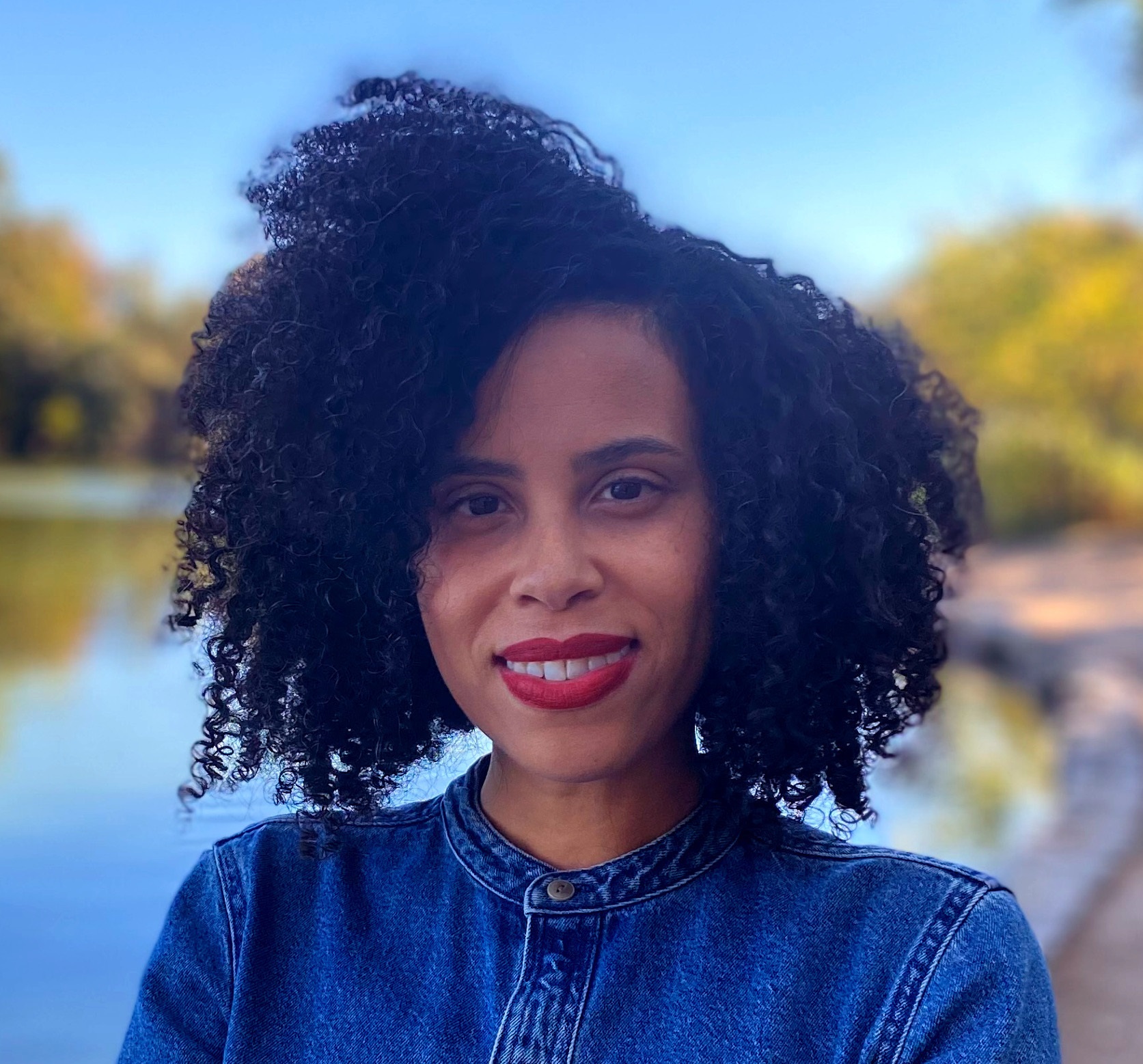 |
|
| photo: Noah Barrow | |
Chantal V. Johnson is a lawyer and writer. Her debut novel, Post-Traumatic (Little, Brown), follows a millennial Black Latina who works as a lawyer representing psychiatric patients and privately struggles to keep at bay what may or may not be her own PTSD from an incredibly tough childhood. Johnson is a graduate of Stanford Law School, a 2018 Center for Fiction Emerging Writer Fellow and lives in New York.
Handsell readers your book in 25 words or less:
Post-Traumatic is a darkly funny novel about the aftermath of childhood trauma, the challenges of gender and the power of friendship.
On your nightstand now:
I just finished the novella Whimsy by Shannon McLeod. It's about a young woman trying to forge connections in the wake of an accident that leaves her disfigured. I kept it on my nightstand because it's very cool-looking (small and orange).
I'm currently reading The Four Humors by Mina Seckin and am really enjoying it: it's wry and sweet and filled with interesting digressions about language, history and familial gossip.
I'm also making my way through all of Percival Everett's novels, and Telephone is up next.
Favorite book when you were a child:
I loved Alice's Adventures in Wonderland. In addition to the surreal and wacky plot, it's a celebration of language and what you can do with it: perfect for a young writer.
Your top five authors:
Anita Brookner is a master of the character study, and she writes perfect paragraphs. I love that her writing is as meticulous as many of her main characters, who work very hard to avoid the messiness of life.
Elena Ferrante is a model for propulsive writing about gender and relationships.
Zadie Smith manages to be a brilliant novelist, essayist, cultural critic and reader all at once.
Ben Lerner has been a major influence on me. His writing is cerebral and interior, while also being really invested in intimacy and relationships.
I love all of Marie NDiaye's strange, somewhat surreal novels of troubled women, personal and inherited shame and familial estrangement.
Book you've faked reading:
Probably something by Deleuze and Guattari in graduate school.
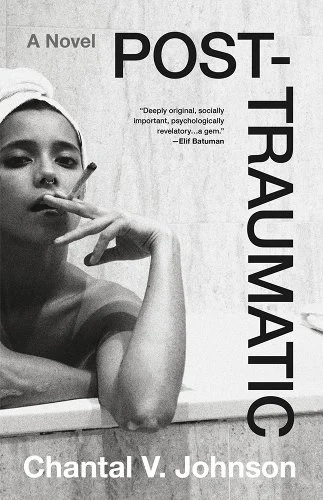 Book you're an evangelist for:
Book you're an evangelist for:
There are currently two. First is The Great Offshore Grounds by Vanessa Veselka, which is a female road novel, a shipping-and-boating novel and a novel about social class and the complications of family. Vanessa is also just great at making things happen, plot-wise.
I am also championing The Trees by Percival Everett, which is a darkly comic police procedural crossed with a race revenge story. It's marvelous and utterly distinct.
Book you've bought for the cover:
Painting Time by Maylis de Kerangal, which features a lovely Picasso painting and hand-written lettering on the cover. It's a perfect design for a novel about ambitious young artists who paint all night. Na Kim has got to be one of the best book designers in the business.
Book you hid from your parents:
I don't remember ever having to hide a book.
Book that changed your life:
There are so many, but I was lucky to get to read Annie Dillard's Pilgrim at Tinker Creek in a high school English class. The idea of a brilliant woman taking herself and her thoughts seriously--and prioritizing solitude and reflection--really affected me at that age.
Favorite line from a book:
It's from "Privilege," one of the stories in Alice Munro's The Beggar Maid: "Learning to survive, no matter with what cravenness and caution, what shocks and forebodings, is not the same as being miserable. It is too interesting."
Five books you'll never part with:
I still have my high school copy of Pilgrim at Tinker Creek: it's filled with my teen scribblings and naïve thoughts--and I love it.
My first year of college I took a course devoted entirely to Virginia Woolf, and I still have most of those books. But The Waves stands out as a keeper.
Sylvia Plath was formative for me, and I'll never part with the tiny Faber & Faber paperback version of Ariel that I bought in Paris at Shakespeare & Company when I was 19.
I reread Dinner at the Homesick Restaurant by Anne Tyler once a year, so I've got to keep that.
Finally, I'll never part with The End of Vandalism by Tom Drury, because it is a perfect book and one that makes me feel better each time I read it.
Book you most want to read again for the first time:
Milkman by Anna Burns is an incredible book that really opens up new formal possibilities for the novel. It is written in a completely original style and contains brilliant insights on gender and oppressive communities. I am far too cynical to experience much awe or wonder in life, but that's what I felt while reading Milkman.
A book you love that readers might not know:
Pig Tales by Marie Darrieussecq. It's a gender satire about a woman who turns into a pig.
Book Candy
Book Candy
"A brief history of library cats," brought to you by Mental Floss.
Merriam-Webster looked up "8 words we stole from French... some of which mean different things in English."
"Harry Potter and the missing sketches: J.K. Rowling's first drawings of boy wizard," courtesy of the Guardian.
Open Culture offered a "master list of 1,700 free courses from top universities: a lifetime of learning on one page."
With Prejudice
by Robin Peguero
Robin Peguero's penetrating legal thriller begins with seven strangers in a jury deliberation room, preparing to decide a man's fate. By the end of the first chapter, it's clear these people are far from being unbiased, for every single person has come to the table--as the title says--With Prejudice.
The story then shifts to introduce an ambitious young prosecutor named Sandy Grunwald, who's preparing to start the murder trial of Gabriel Soto, accused of killing a young woman named Melina Mora two years ago. An eyewitness claims Soto was arguing with Mora at a bar earlier in the evening on which she disappeared, though the witness originally described the suspect as being of an ethnicity different from Soto's. Mora's body was never found, only a set of bones in a morgue that were identified as hers. The night before the trial begins, Grunwald receives a stunning blow to her case.
Gleefully lapping up this development is Grunwald's formidable opponent, public defender Jordan Whipple. His rejection from all the Ivy law schools has become "a chip he carries on his overdeveloped shoulders." Whipple will do whatever it takes to win, including going against his client's wishes to paint a false picture of Soto in court.
Back in the deliberation room, readers get to know the diverse group of jurors: a white man who considers himself the enforcer of rules in his neighborhood; a Black tax collector who follows rules even though sometimes they work against him; a white progressive lawyer engaged in social justice for marginalized people; a Nicaraguan American doctor who's not against fudging facts when the truth is too painful to reveal. These are some of the people sitting in judgment of the defendant, but are they truly his peers?
With Prejudice, Peguero's first novel, delivers more than just a complex mystery; it pulls back the curtain to provide a 360-degree view of the American legal system's inner workings. Besides delving into the backgrounds of the prosecutor, public defender and jury members, Peguero also serves up personal histories for the judge and the lead detective on the witness stand. Most of the key players show up with good intentions, but when everyone's world views have been shaped by drastically different life experiences, it's hard to agree on what's right.
Peguero's writing is striking for the stark observations about the legal system, such as this description from Grunwald, the prosecutor: "The jury is a crew of misfits. The scraps that neither side particularly wanted.... You don't pick a jury. You're left with a jury. If you're too informed... then you might know too much. The court itself kicks you off. If you're too opinionated... then you might think for yourself too much. It's a race to the bottom." Such a pronouncement might seem cynical, but it's hard to argue that it doesn't ring true.
The author also doesn't pull punches when it comes to the goals of the attorneys on both sides. Instead of aiming for truth and justice, Grunwald and Whipple are more concerned about who will put on the best performance in the courtroom. At one point Whipple asks Grunwald, "How does it make you feel that you're about to spend day after day pummeling a poor closeted gay kid in order to earn a conviction?" Grunwald snaps back, "The same way, I assume, you'll feel about portraying a poor dead girl as a reckless, drunk whore who brought this all on herself." As if these statements aren't startling enough, both Grunwald and Whipple believe they have the moral high ground. The novel makes one ponder: Will either side's actions deliver justice for the victim and reveal the truth about what happened to her?
While some of the characters have noble goals and others have questionable motives, none are portrayed as stereotypes. A good cop can still have shameful secrets from his past, and a doctor who heals patients can hide the harm and violence in her own family. Peguero shows the reasons that compel some people to move in gray areas, and how sometimes, regardless of intention, the consequences can be devastating.
As the omniscient narrative flits from person to person, it also travels back to when some of the characters were younger. Peguero cleverly depicts points in time without giving specific dates, years or even decades. Instead, he mentions someone buying VHS workout videos, or two young friends--one white, one Black--being called Riggs and Murtaugh, a reference to the characters in the 1980s Lethal Weapon movies. The absence of clear time markers helps stories move smoothly between time periods, and sharp-eyed readers won't have a problem determining in what year a scene is set.
No matter the year, Peguero's debut novel is a timely one, asking hard questions and revealing harder realities about an imperfect system. But for fans of legal thrillers, objectivity isn't necessary. The verdict is that With Prejudice is a thought-provoking and satisfying read. --Elyse Dinh-McCrillis
Exposing What's There
An Interview With Robin Peguero
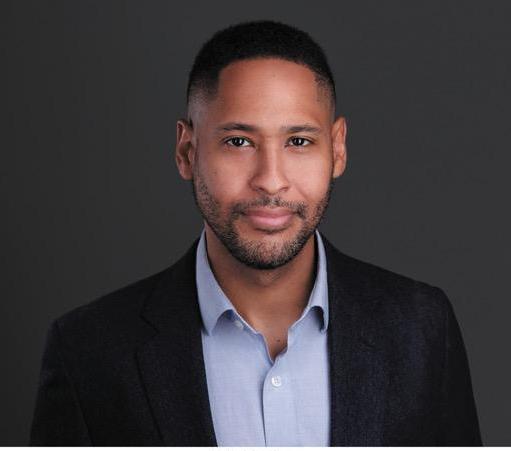 |
|
| (photo: Chris Gillett) | |
After graduating from Harvard College and Harvard Law, Robin Peguero spent seven years telling stories to juries, most recently as a Miami homicide prosecutor. Currently he works for the U.S. House of Representatives as investigative counsel on domestic terrorism. His first novel, With Prejudice, will be published by Grand Central on May 17, 2022.
With Prejudice is told in omniscient voice, delving into many characters' psyches. Which ones did you identify with most or find easiest to write? Which were most challenging?
In art, as in life, I identify most with characters whose vulnerabilities are on full display. They're often also the most challenging to portray. Detective Samuel Sterling is a man of many virtues who is nonetheless flawed, bruised by an adolescent trauma that haunts him well into adulthood. Jury foreman Earl Thomas is a government employee who innately respects authority and follows the rules, but he has found himself serially entangled in police interactions outside of his control. As the person breathing life into them, I must thread the needle, honoring their complexities and contradictions to form round, flesh-and-bone human beings both charming and unpleasant.
The easier--and most fun--characters to create lay bare an unsavory human condition in need of examination. We see ourselves in them, our ugliest impulses, and it makes us strive toward self-improvement. Characters like Jordan Whipple, the preening public defender who revels in adversarial lawyering, or Joseph Cole, a neighborhood busybody with questionable views, or Arnie Weiss, a woke white man with a savior complex--all are familiar figures that reveal to us the ways in which we can do better.
An incident that happened to your father when you were 11 deeply affected your life.
My father was arrested. He was pumping gas and, while attempting to catch a glimpse of the prices on the oversized board, meandered into the personal space of a woman outside his field of vision. One of her friends called the police. They arrived, my father was disgruntled, and they arrested him on charges of disorderly conduct and resisting arrest without violence. To hear that my father--a grade-school teacher who never drank, did not smoke, didn't even curse--had succumbed to the system crushed me.
I distinctly remember thinking that such a run-in (however small) would be my lot in life. That this was, at some point, likely to happen to me. I don't want any 11-year-old to think like that. It all came full circle years later, when my father sought to have the record expunged while I was a first-year prosecutor. I didn't handle the matter myself, of course, but it was somewhat poetic that almost 20 years later, I was serving in the office that had previously prosecuted him and the one that oversaw his formal absolution. The criminal justice system is complicated, and so are the lives of the people caught up in it. I try to never lose sight of that.
What were some of the biggest surprises you encountered after you became a part of the legal system?
I was surprised by how little of the American criminal jury trial is geared toward getting at the truth. Instead, it's a zero-sum game where two sides of diametrically opposing interests perform before strangers for high stakes: sometimes either complete exoneration or a lengthy prison sentence but no in-between. It's high risk, high reward. If you lose after being treated to a high burden of proof and a defense attorney whose job it is to tell an alternate story--whether it is based in truth or not--stiff penalties somehow feel earned. Often, we never get to hear the truth, at least not from the perpetrator, who knows it best.
So much of a trial is performative. We hide a lot from the jury, like a defendant's prior record. As lawyers, we must pretend certain things are untrue or leave otherwise obvious things unmentioned. Both sides get to tell the jury a story, and so much of how that story is received depends on factors outside of revealing the truth: the oratory skills of the attorneys, the treatment of the lawyers by the judge, and research has even shown that something as superficial as the attractiveness of the advocates can unduly affect outcomes. How much of it all is a show is what shocked me.
When did you start to think you had a novel in you?
I've been writing stories since I first learned to grip a pen. At recess in grade school, I sat myself in a corner and scribbled longform stories into my spiral notebook. For my birthday parties, I'd have penned screenplays (usually horror) that I coaxed my friends into performing and video recording. So I knew--from my days doing journalism in college, to my speechwriting in Congress, to my trial work as a lawyer--that I had stories to tell.
It wasn't until I tried my first homicide as a fairly young prosecutor that it struck me the topic was ripe for a novel. There was so much drama in that frigid courtroom: highs and lows, moments that stole my breath and sank my gut, the full spectrum of emotion and suspense that left me enervated and sleepless for days at a time. Trial is never dull. I wanted to replicate that feeling for readers.
With Prejudice includes blunt truths, such as a description of a jury as the "scraps that neither side particularly wanted." What changes could help make the process more equitable or effective?
There is a legal fiction in jury picking: seeking the tabula rasa--the blank slate--who can set aside all preconceived notions and fairly, objectively adjudicate facts. But we all see the same facts through different lenses and, at times, emerge with wildly different takeaways. There is no such thing as objective. This is what makes our system ultimately human.
In an attempt to make it seem we're stripping a jury of all its biases, critics say we end up with the lowest common denominator: jurors who aren't well read or informed, who haven't given some of life's big questions much thought or don't hold deep convictions on debates central to our cultural conversation. I would not go that far. In my experience, jurors can and do serve admirably and intelligently, trying their best to follow the law even when their impulses say otherwise.
But I think we ought to speak more honestly about the process. Jury picking is a game where both sides try their best to keep jurors sympathetic to their cause and remove those whose views are antithetical. Trial attorneys almost universally confirm that cases are won and lost in jury selection. That's an acknowledgment that outcomes are less contingent on the facts than on who's making the decision. The novel is less geared toward advocating for specific change than it is merely exposing what's there. Because you can't change or improve upon it until you first see it for what it is.--Elyse Dinh-McCrillis
Rediscover
Rediscover: Larry Woiwode
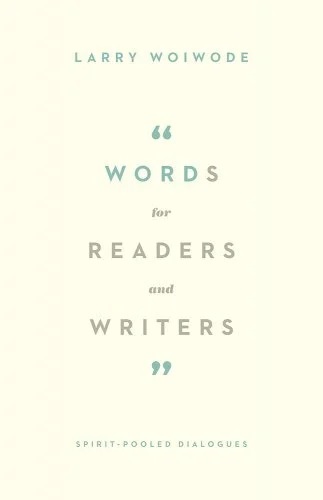 Larry Woiwode, the author of "lyrical, expansive novels, short stories, poems and essays, mostly planted in the American West, that explored the power of place, family ties and faith, spiritual and otherwise," died April 28 at age 80, the New York Times reported. Woiwode's 1975 novel, Beyond the Bedroom Wall, "a 600-page saga about four generations of a North Dakota farming clan, established his place in American letters. For its epic sweep, elegant language and essential themes, he was compared to Dickens, Melville and Tolstoy." For a decade as a young writer, Woiwode was under the mentorship of legendary editor William Maxwell, who, like Woiwode, had grown up in a small town in Illinois and gone to the state university's Urbana-Champaign campus. Woiwode's first novel, What I'm Going to Do, I Think (1969), won the William Faulkner Foundation Award for the most notable first novel of the year and was a finalist for the National Book Award. In 1978, he and his wife moved to a 160-acre farm in North Dakota, which they farmed themselves.
Larry Woiwode, the author of "lyrical, expansive novels, short stories, poems and essays, mostly planted in the American West, that explored the power of place, family ties and faith, spiritual and otherwise," died April 28 at age 80, the New York Times reported. Woiwode's 1975 novel, Beyond the Bedroom Wall, "a 600-page saga about four generations of a North Dakota farming clan, established his place in American letters. For its epic sweep, elegant language and essential themes, he was compared to Dickens, Melville and Tolstoy." For a decade as a young writer, Woiwode was under the mentorship of legendary editor William Maxwell, who, like Woiwode, had grown up in a small town in Illinois and gone to the state university's Urbana-Champaign campus. Woiwode's first novel, What I'm Going to Do, I Think (1969), won the William Faulkner Foundation Award for the most notable first novel of the year and was a finalist for the National Book Award. In 1978, he and his wife moved to a 160-acre farm in North Dakota, which they farmed themselves.
Woiwode's books included five novels, two short story collections, two memoirs--What I Think I Did (2000) and A Step from Death (2008)--and a collection of poetry, Even Tide. His most recent essay collection, Words for Readers and Writers: Spirit-Pooled Dialogues (2013), is available from Crossway ($25).
Read what writers are saying about their upcoming titles


